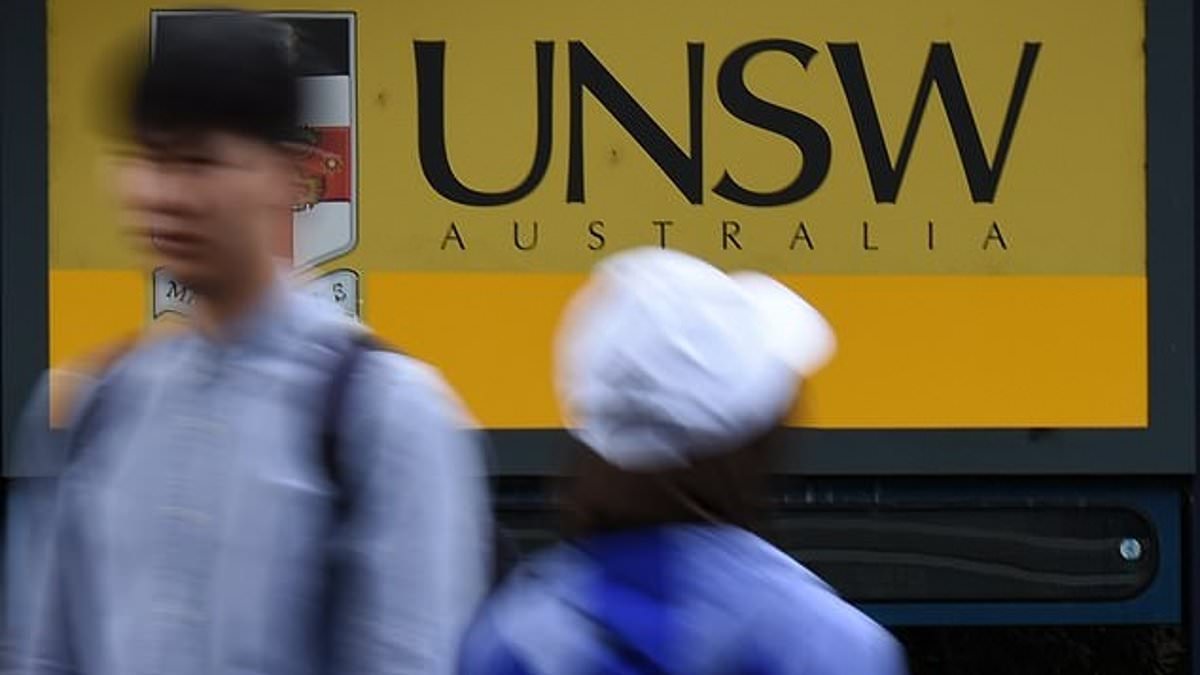Furious students have blasted universities for enrolling Chinese internationals ‘who can’t speak a word of English,’ claiming they are dragging down grades.
An international student from Thailand studying Communication Design at RMIT University in Melbourne said they were thrilled to join ‘the top design school in .’
‘I thought everything would be awesome,’ they told Daily Mail.
‘And don’t get me wrong, it is awesome to be here. The lecturers are great, the facilities are world-class, and most of my classmates are brilliant. But a certain group of people ruined the vibes.’
They claimed they were shocked to find some Chinese classmates had ‘very low English skills,’ despite strict visa and entry requirements.
‘There’s this group of Chinese international students in my class who cannot and refuse to speak English. When the lecturer asks them something they just stare blankly at them then smile and giggle with their mates.
‘It’s so frustrating having to wait for them to say something back to the lecturer because sometimes the lecturer wouldn’t let them go until they answer back, and it was a long moment of pure silence in the class.
‘I’m an international student myself and I feel so unfair that I have to do English proficiency tests before stepping foot into this country and then I see these idiots are sitting in the same class as me.
The government raised English language requirements for international students in March, lifting the minimum IELTS score from 5.5 to 6.0 out of 9. A level 6 is considered ‘competent,’ while level 7 is ‘good’ and level 8 ‘very good.’
But students argue the changes are trivial and say more must be done to ensure international students with poor English don’t hold back their peers.
‘As international students we all have to sit English proficiency tests like IELTS and reach a minimum score before we can even get our visas. That’s the rule. But some of my classmates can barely communicate,’ they said.
The RMIT student said a friend was lumped with a group member who ‘didn’t even know the topic’ and simply pasted ‘unedited text generated by ChatGPT’ into assignments.
‘Communication Design is about communication, that’s literally the name of the course. Even if someone is a design prodigy, if they can’t explain their work, they won’t get full marks. The progress and the discussion are just as important as the final product.’
Rumours of students outsourcing entire assignments left them feeling ‘disappointed and unfairly treated.’
‘This is supposed to be one of the best Art & Design departments in the world, why are these students here?’ they asked, before questioning whether universities were simply chasing fees.
‘Does RMIT treat them as cash cows? Probably. I joke to my friends that international students are ‘s economy boosters, maybe that’s why housing has gotten so bad, right?’
Still, the student said they did not regret moving to Melbourne.
‘I love it here. I love my uni, my classmates, and my lecturers. I’m so grateful to my parents for giving me this opportunity. But I just wish the government and universities would hold higher standards.
‘Better students mean better graduates, and a better reputation for .’
Universities have long been accused of having an addiction to Chinese students, who pay billions of dollars each year to earn prestigious degrees in .
The high numbers of Chinese students have influenced how some classes are delivered, with the University of Melbourne called out in August for teaching tutorials in Mandarin and alienating n students as a result.
Their comments echo the experience of Sydney engineering student Peter James Cruz, who said he has often been forced to ‘carry’ group projects because some peers cannot communicate in English.
‘I know that translators are more advanced now, but they are only a crutch to an ever-growing problem in my eyes, and cannot replace knowing the language,’ Mr Cruz said.
In one case, he was grouped with a student who didn’t speak English and used ChatGPT to complete their section of the assignment. Mr Cruz had to rewrite it himself, since AI-generated work is currently banned at universities – though those rules are expected to change next year.
‘It did create more work for me as I had to check through the ChatGPT responses. This did force some drastic fixes which did limit the grade,’ he said.
Mr Cruz, 19, is an n citizen who pays $10,000 a year for his degree, compared to up to $60,000 for international students.
He said that his concerns weren’t about race, but about ‘a minority’ of students who lacked the skills to do the work properly.
The issue has fuelled widespread backlash against universities, which many accuse of prioritising profits over educational quality.
‘[It] occurs at most universities and is a result of greedy unis and the commodification of tertiary education as a primary export,’ one commenter said.
Another blasted the situation as an ‘absolute disgrace’ that ‘weakens us as a nation whilst lining the pockets of a few.’
Others agreed with the original student’s complaint. ‘I fully relate to you man… people like them really give us international students a bad look here on campus.’
now has the highest number of international students per capita in the world, with around 700,000 currently in the country.
The Albanese government came under fire in August for lifting the annual cap on new enrolments from 270,000 to 295,000, sparking fresh concern that numbers are spiralling out of control.
China remains the biggest source of international students, though a recent government report suggested may begin diversifying, with India, now the world’s most populous nation, emerging as a key market.
